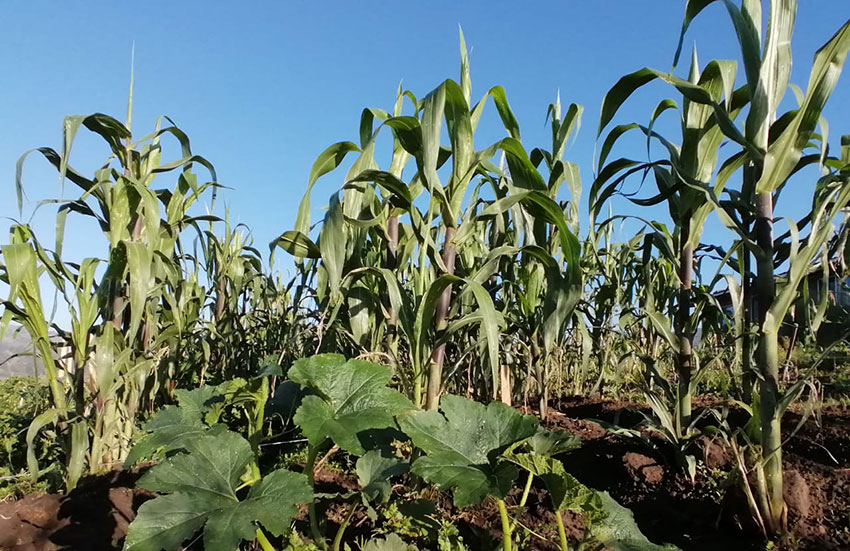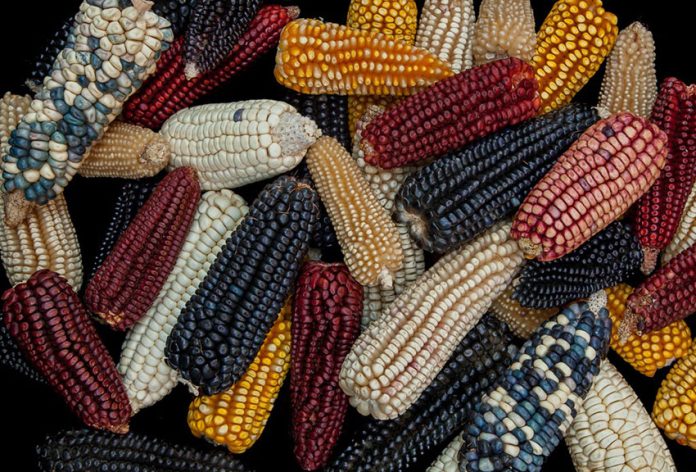While the world focuses on the Covid-19 pandemic, in politics it is business as usual. Deals are signed and laws are proposed amid the chaos, some, perhaps, in the hopes that a distracted public won’t put up much of a fight to their passage.
But in June, the Sin Maíz No Hay País (No Corn, No Country) campaign’s network of activists let Mexican politicians know that they were paying attention and that they planned to protect the rights of farmers.
Back in March at the beginning of the pandemic, a handful of proposed changes to Mexico’s intellectual property laws were presented by lawmakers in anticipation of the signing of the United States-Mexico-Canada Agreement (USMCA) that went into effect July 1. One law to be included in the docket changed the Ley Federal de Variedades de Vegetales (The Federal Law of Vegetable Varieties).
Presented by Morena party Deputy Eraclio Rodríguez Gómez, the changes would criminalize the saving or the exchange of seeds with a penalty of up to six years of jail time, as well as allow companies to claim the harvest of farmers they suspect of using their seeds without permission.
Despite a political push to push the changes quickly through Congress, a campaign by Sin Maíz No Hay País was successful in getting the proposed changes taken off of the congressional agenda and their discussion postponed for a future date. A new proposal for the law is expected when the Congress reconvenes in September.

The impetus for the changes comes with entrance into force of the USMCA, the updated version of the North American Free Trade Agreement. Trade deals like the USMCA oblige countries like Mexico and Brazil to adopt the latest version of the International Union for the Protection of New Varieties of Plants (UPOV) Convention, or UPOV-91.
An intergovernmental, international body that now includes over 70 member countries, UPOV has been working since 1961 to privatize seeds around the world through intellectual property rights. Several versions of the UPOV convention have been written, each strengthening the rights of corporate plant breeders and seed manufacturers and restricting the freedom of small farmers to save, exchange and sell seeds. The UPOV convention essentially sets up a system for registering plant varieties in each country. It gives rights to a single breeder for that variety’s sole use and sale. Once adopted, the convention’s protections must be written into each country’s national laws.
Mexico ratified an earlier version, UPOV-78, within whose parameters activists are hoping they can remain, despite international pressure.
There are four major differences between the 1978 version of UPOV and UPOV-91. The first is that according to the 1991 version farmers cannot freely save seeds of protected varieties to use in further planting. This means that any seed farmers might purchase that is registered and protected cannot be used for the next year’s harvest, essentially obliging farmers to purchase new seed or pay royalties to use saved seed.
Secondly, plant varieties and seeds can now be patented. This means that any unprotected or unregistered seeds currently used by farmers that is “discovered” by a company is free game to be patented by that company. This portion of the convention sets the stage for the entrance of genetically modified seeds as it allows for the patenting of genes.
Thirdly, any breeder with rights to a certain seed that they believe has been used without proper payment now has rights to the farmer’s harvest that the seed was used for (before they only had rights to the seeds themselves). So a company that believes its seed to have been used improperly can take everything produced from that seed on a farmer’s land.
The final change is a prohibition against further breeding. This means that if a farmer uses a protected seed and cultivates it in such a way that further breeding produces a different plant, that new plant is considered a variety of the first plant and is also owned by the breeder with rights to the original seed.
The violation of “breeders rights” by farmers is punishable by fines, confiscation of product, and jail time in some countries.
Those opposed to the convention say that hundreds of generations of farmers in Mexico — exchanging, cross-breeding and selecting their seeds for particular environments — are what has given the country its current megadiversity. Fifteen percent of all plants in the global food system are native to Mexico, and there is concern that without exchange and natural selection, biodiversity in Mexico, especially of its 64 native species of corn, will diminish.
Activists and academics point out that the country’s poorest farmers depend on saving seeds from their land each year in order to feed their families. For some, this is their main source of food.
Supporters of UPOV point out that anyone can apply to have protected rights as a plant breeder, but 94% of hybrid and “improved” seeds are in the hands of private corporations, not small and medium-sized farmers. Additionally, in the process of applying for breeders rights, priority is given to companies that have previously applied for the rights in other member countries, so Monsanto, for instance, which has already been awarded rights to specific seeds in the United States, would get priority approval for breeders’ rights in Mexico.
Ratification of UPOV-91 does not override national laws already on the books, which is why striking down the changes to the vegetable varieties law was vital to opposing the convention. Mexico has four years to approve UPOV-91 and within that time the Sin Maíz no Hay País campaign plans to lobby lawmakers to pass further laws that will protect farmers’ rights to seeds.
They also plan to undertake an information campaign aimed at rural farmers, many of whom are unaware of the proposed laws and their ramifications.
Mexico News Daily
